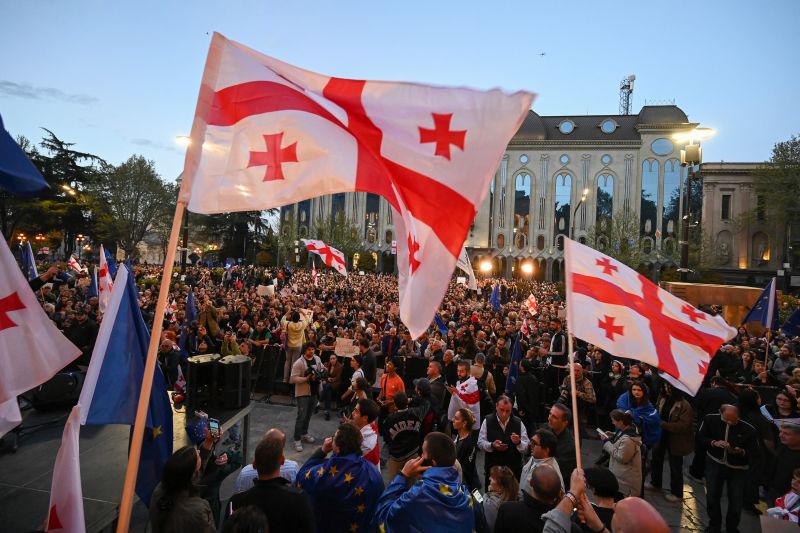
Turmoil in Georgia: Controversial ‘Foreign Agents’ Law Sparks Fierce Clashes!
Despite being nestled in the heart of relative tranquillity in the South Caucasus region, the past few days have seen Georgia scrawled onto global headlines with reports of violent clashes spreading across the historically rich country. The veritable tinderbox of tension that has ignited these skirmishes lies within the controversial debate around the legislative proposal known as the ‘foreign agents’ law.
This highly contested law has incited widespread outcry, not only in the Georgian capital of Tbilisi, but throughout the country. At its core, the law aims to place greater regulation and scrutiny on foreign-funded non-governmental organizations (NGOs) that participate in Georgia’s political process. A far cry from the cultural dances and wine tourism that typically pervade Georgia’s international image, images of Molotov cocktails and riot police are now defining a new narrative.
The ‘foreign agents’ law debate has drawn heavy bipartisan outrage, with opponents arguing that it threatens the country’s fragile democracy. This is a sentiment largely held by the thousands of demonstrators who have stepped out onto the streets to protest the law. By cracking down on foreign-funded NGOs, critics suggest that the law could stifle the voice of the opposition, suppress civil society, and pave the way for potential autocracy.
However, while the law has drawn criticism, it has also attracted a share of support, predominantly from factions within the government. These supporters claim the bill simply seeks to increase transparency in political funding, helping to avoid potential foreign influence on Georgia’s political agendas. They argue that the law is a preemptive measure to safeguard the sovereignty of the nation and the integrity of its democratic process.
Yet, the opposing reactions to the law have been starkly marked — peaceful protests swiftly escalating into violent clashes. These confrontations have stretched across the country, from the cobblestone streets of Tbilisi to the idyllic landscapes of the wine region of Kakheti. Images of police in riot gear, public brawls, and burning projectiles bring home the harsh realities of a nation at odds with itself.
Particularly alarming has been the immediate consequences of these clashes. The civil unrest has led to multiple arrests and injuries, prompting criticisms from human rights groups and escalating geopolitical concerns. Notably, Georgia’s volatile location — with Russia to the north and unstable regions to the south — only adds fuel to the regional tension.
Several high-profile international figures have weighed in on the issue, further spotlighting the volatile situation. The United Nations called for a thorough investigation into the violence, while the U.S. State Department urged restraint from both protesters and law enforcement agencies, emphasizing the need for meaningful dialogue on the issue.
This controversy places Georgia in a precarious position. While the future of the ‘foreign agents’ law remains uncertain, what is clear is that its potential implementation poses severe implications for Georgia’s sociopolitical landscape. The raging debate surrounding this proposal has not just been about policy details, but also about the wider context of democracy, transparency, and foreign influence in Georgia’s civic space. Significantly, the violent clashes are a testament to the raw tensions that exist within this vibrant yet complex nation.
